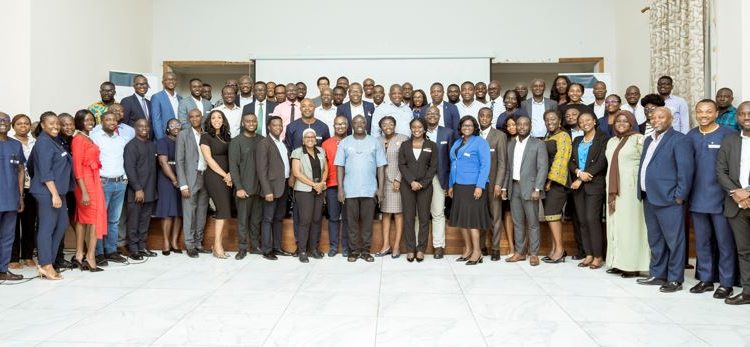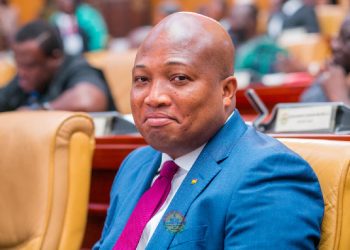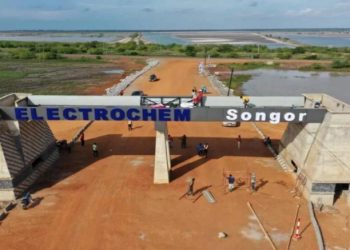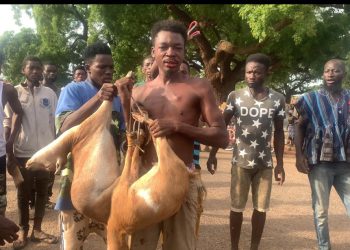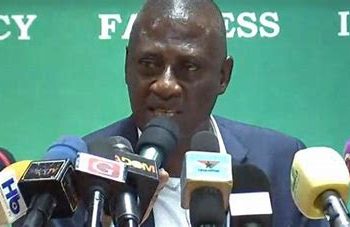In its quest to have a robust banking sector with a well-implemented environmental and social management system, the Development Bank Ghana has organized a workshop for financial institutions.
The five-day workshop, organized by DBG in partnership with the World Bank and the Ministry of Finance, seeks to sensitize environmental and social principal officers drawn from over 35 financial institutions.
The training program is also intended to help the various banks comply with the Bank of Ghana’s Sustainable Banking Principles, thereby positioning them to receive development financing from DBG.
In a speech read on his behalf during the official opening of the Training of Trainers Workshop in Koforidua, Eastern Region, on Tuesday, DBG CEO Kwamina Duker expressed the bank’s commitment to strengthening the environmental and social management capacity of Ghana’s financial institutions and their stakeholders.
He expressed hope that the training would equip DBG’s partner financial institutions and potential partners to evaluate and mitigate their credit decisions on the environment.
“We also hope that the sessions over the next few days will fully equip DBG’s partner financial institutions and potential partners to evaluate and mitigate the inherent E&S exposures in their credit decisions.”
“This program, we hope, will serve to accelerate the compliance of our banks with the Bank of Ghana Sustainable Banking Principles and better position them to receive development financing from DBG,” the CEO of DBG expressed hope.
Mr. Duker acknowledged that their projects hinge on the intricate interplay between development initiatives, environmental, and social impact.
“At the heart of DBG’s mission lies a deep acknowledgment of the environmental and social dimensions of development. We recognize that responsible and sustainable development is a fundamental necessity. Our economic progress, the well-being of our communities, and the success of our projects all hinge on the intricate interplay between development initiatives and environmental and social impact.”
On his part, John Boateng Akuoko-Tawiah, Head of ESG, Sustainability, and Climate Finance at DBG, emphasized the need for the bank to build the capacity of the financial institutions.
“As a development bank whose mandate also includes building the ecosystem in terms of building capacity within the financial institutions’ players, we are very keen on this because we believe that through this, we are able to provide additionality to the private sector. And also build the financial capacity for them to be able to evaluate their environmental exposure that exists in investments and credit decisions they also make,” he said.
Carlos Leonardo Vicente, Senior Financial Sector Economist at the World Bank, expressed hope that the participants would be equipped with the necessary tools to aid their work, expressing gratitude to DBG and the Ministry of Finance for joining forces to train staff in the banking sector.
“I hope that the training will exceed your expectations. Let me express my gratitude to DBG and the Ministry of Finance for joining forces with the World Bank to make this training a reality,” he said.
Andy Ameckson, Head of the Banking and Non-Banking Unit at the Ministry of Finance, underscored the importance of building a robust financial banking sector, citing DBG’s agenda of nurturing businesses.
“It is a known fact that for any nation to flourish, its financial architecture needs to be robust, inclusive, and dynamic. And the Development Bank Ghana, I believe, is the fulcrum around which this architecture pivots. It is not just about providing credit or helping commercial banks nurture businesses, but about crafting an environment where dreams find wings, and visionaries find means,” he stated.
He acknowledged that DBG’s projects contribute positively to local development.
“By avoiding or mitigating issues such as deforestation, pollution, and habitat destruction, the bank helps ensure that projects contribute positively to local development, enhance livelihoods, foster social cohesion, and guarantee long-term economic viability,” he stated.






